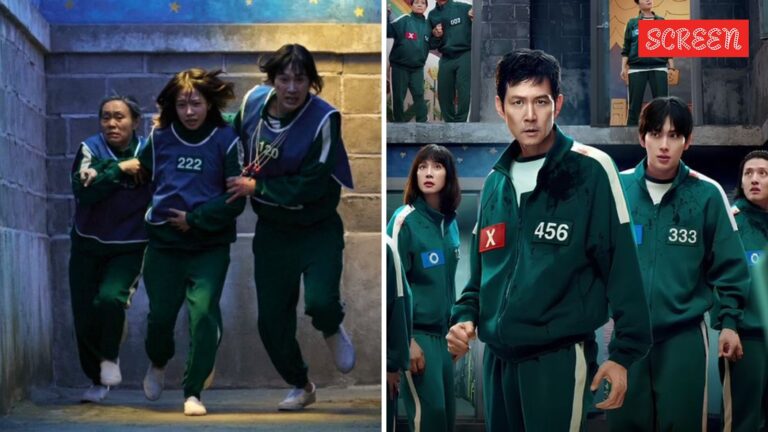“There is no such thing as an antiwar film,” the French New Wave icon Francois Truffaut famously declared once upon a time. It was almost as if he’d secretly been yanked into the future and made to attend a ‘special screening’ of Uri: The Surgical Strike at PVR Juhu. It is, indeed, irresponsible for any movie to glorify war, and Truffaut was of the opinion that this isn’t a supposition, but an inevitability. He wasn’t entirely correct, of course. There have been several great antiwar films over the years, and we’ll discuss some of them here. But what about Indian movies? The recent film Ground Zero, which was released on Prime Video following a theatrical run that was unfortunately affected by the Pahalgam terror attack, appears to be aware of these concerns. But it chooses to ignore them when it matters the most.
Starring Emraan Hashmi in the lead role, Ground Zero follows a BSF officer called Narendra Dubey on a determined quest to hunt down the notorious militant leader Ghazi Baba after the 2001 Parliament attacks. Ghazi Baba was a close aide to Masood Azhar, who was released by Indian authorities during the IC 814 hijacking. Instead of making him the manifestation of Kashmir and its people, Ground Zero treads the middle path; it doesn’t view every Kashmiri Muslim as a traitor, but it certainly views most of them as victims. And where victims exist, there must be a saviour. That man is Dubey, who appears to be aware of the alienation that military presence has created in the hearts and minds of the locals.
 Emraan Hashmi leads Ground Zero.
Emraan Hashmi leads Ground Zero.
Directed by Tejas Prabha Vijay Deoskar, Ground Zero doesn’t go so far as to show military brutality or the ‘forced disappearances’ that reflect the reality of the local population. Nor does it spare a moment for the ‘half-widows’ who roam the land like tortured spirits. But such are the times we live in, when even a moderately responsible Hindi movie comes across as a grand beacon of empathy. One could argue that Shershaah would’ve been the ideal candidate to comment on the ultimate meaninglessness of war, but because the movie valorises Captain Vikram Batra’s ultimate sacrifice and frames it against an Indian victory, it ends up endorsing the idea of violent combat.
Neither Shershaah nor Uri are antiwar movies. Ground Zero could have been, had it not been so oblivious about certain, well, ground realities. Not too long ago, Alex Garland and Ray Mendoza’s Warfare showed just how efficiently political statements can be made through cinema rooted in fact. Based on Mendoza’s own experiences during the Iraq War, the movie, for him, was a tribute to his fellow soldiers. For Garland, it was an opportunity to comment on America’s foreign policy, now that the dust has somewhat settled on the Bush years. Warfare ended with a shot of dazed Iraqi fighters slowly streaming out of destroyed residential buildings, having driven out a group of American soldiers they’d cornered in them. They look around silently. The Americans have fled, injured and depleted. Iraq lies ravaged. What was the purpose of all this?
Ground Zero isn’t as well-crafted. It paints Kashmir as a land and Kashmiris as a people not to be tamed, but to be won over — with kindness, compassion, and bravery. For a movie whose every frame seems to be have been desaturated to the point of being black-and-white, it certainly has a rose-tinted view of the complex situation. “Kuch bhi bolo, Kashmir hai toh humara,” says one of Narendra’s fellow soldiers to him at one point in the movie. “Sirf Kashmir ki zameen humari hai ke yahan ke log bhi?” he asks. The movie understands that there is a difference. And, to illustrate this difference, it introduces the character of Hussain, a local youth who is brainwashed into carrying out random acts of violence against the military in exchange of a small sum of money.
Without quite understanding or examining what could’ve drawn a boy like Hussain towards terrorism, Narendra tries to convert him towards the ‘good’ side. He is made an informant, but Ground Zero doesn’t portray this as its own kind of exploitation and brainwashing. Because Narendra is a virtuous man, nothing he does can be morally questionable. We must assume that he always has everybody’s best interest in mind. Call it reverse fridging, but Hussain predictably dies in the line of duty and leaves Narendra to deal with the guilt. It’s a personal loss for him, one that makes him all the more determined to find Ghazi Baba and end his reign of terror for good.
Story continues below this ad

Read more – The Diplomat: If John Abraham wants to save his career, he needs to stop saving damsels in distress first
Ground Zero is Hashmi’s second film in a row to express a humanist stance at a time when warmongering seems to fetch folks extra brownie points in the Hindi film industry. For that, he must be applauded. He played the villain in Tiger 3, in which Salman Khan’s protagonist refers to the people of Pakistan as his in-laws, and rescues them from their oppressors. That said, Ground Zero also prominently includes a song whose lyrics go something like this: “Thoda aur lahoo behne do.” Not to mention the climax, which involves a violent combat sequence that leaves a bunch of people dead. This may well be based on fact, but there is no moment of introspection. Was the bloodshed worth it; were the Kashmiris won over? Who knows. Ah well, at least one Narendra is trying.
Post Credits Scene is a column in which we dissect new releases every week, with particular focus on context, craft, and characters. Because there’s always something to fixate about once the dust has settled.

























